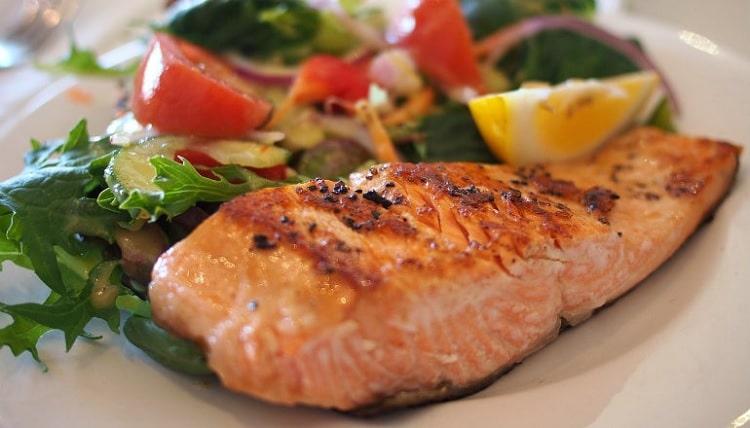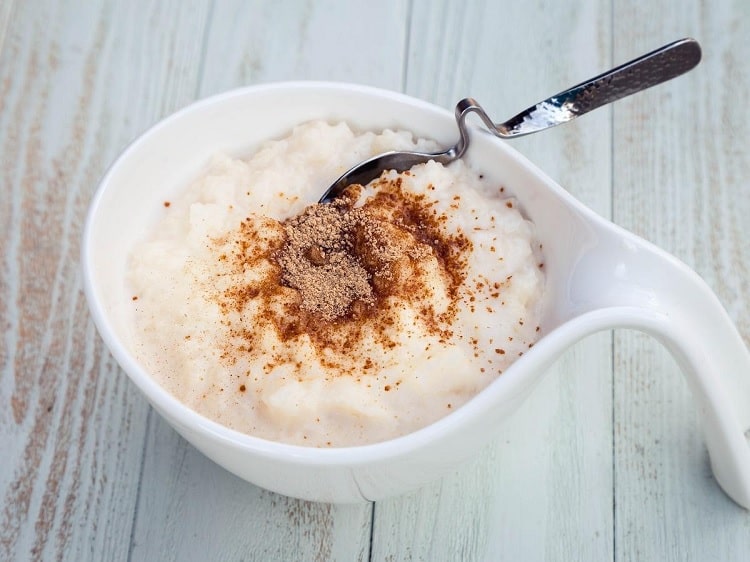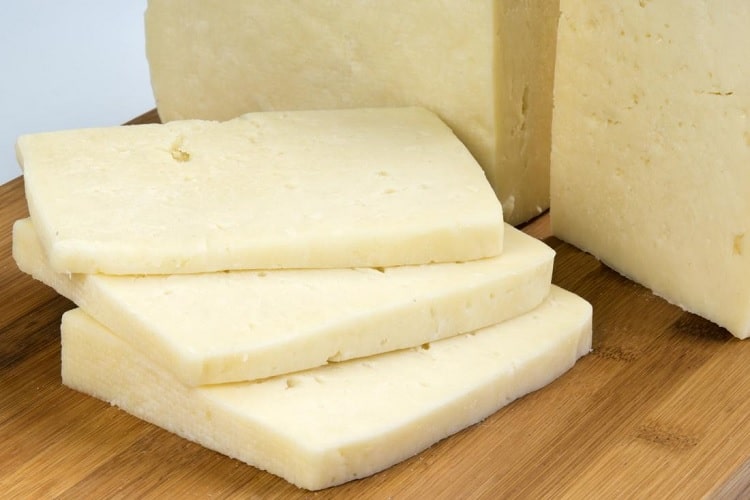Lose Weight and Boost Nutrition with This Surprising Superfood: Salmon
Even though there are various methods of losing weight, it is best to make dietary changes to support weight loss. Including nutrient-dense foods like salmon in your diet can be advantageous for both weight loss and health.
Salmon is one such superfood that can aid in losing weight while preserving your health. This butter-flavored food is packed with vital nutrients like omega-3 fatty acids, protein, fiber, vitamins, and minerals. When you eat salmon in moderate portions, you can manage your weight and maintain your overall well-being.
Salmons are available in wide varieties like farmed salmon or wild salmon. This silver-scaled fish can vary slightly in color from deep red to orange. Salmon is loaded with nutrients that help protect your body against various health conditions. Consuming fish varieties like salmon is associated with lower rates of obesity. We shall delve into the effects of salmons on weight loss and their health benefits in this article.

Nutritional Information of Salmon
Salmon contains essential nutrients that help maintain your health. The nutritional profile of salmon varies slightly based on its varieties. Furthermore, the preparation of salmon can slightly modify its nutritional content. A 100-gram serving of cooked wild salmon contains the following nutrients:
- Calories – 182
- 8 g of fat
- 25 g of protein
- Selenium
- Vitamin B12
- Vitamin B6
- Niacin
- Thiamine
- Pantothenic acid
- Phosphorus
The vitamins and minerals in salmon are essential for increased energy levels, better cognitive function, and enhanced muscle strength. Selenium, a vital nutrient found in large quantities in salmon, supports your reproductive health.
Is Salmon Good for Weight Loss?
Salmon contains high levels of protein, which is an essential nutrient for muscle building and recovery. When you consume protein-rich foods like salmons, you are likely to have a fuller feeling and a reduction in appetite. Consuming salmons can increase feelings of satiety and regulate calorie intake.
You must consume fewer calories each day than your body expends via all forms of exercise in order to lose weight. Controlling your calorie consumption reduces the risk of obesity. This is why people use calorie restriction to lose weight. Moreover, there are fewer calories in salmons, which makes them a good choice for weight loss.
Protein also helps build lean muscle, which increases your body’s ability to burn calories. When you eat salmons, your metabolism boosts, thereby promoting weight loss. Having fast metabolism helps burn more calories at rest. Salmon also contains healthy fats, which can reduce unhealthy fats in the body and aid in losing weight.
These beneficial fats can increase feelings of satiety, which prevents excess food consumption. According to a 2015 study, when combined with an active lifestyle, the omega-3 fats found in salmon can help obese persons lose weight and reduce their belly fat. The oils in salmon can help with weight loss in a number of areas of the body, including the abdomen. Consuming protein-rich foods like salmons helps regulate hunger hormones and curbs cravings, resulting in weight loss.
How to Consume Salmon for Weight Loss?
Including salmons in your diet can help manage your weight. There are different ways in which salmons can be prepared for consumption. But the ideal way to prepare salmons for weight loss is by pan-frying, grilling, broiling, baking, or roasting salmon recipes. It is recommended to consume 200 – 250 grams of salmon a week to lose weight. Instead of consuming salmons alone for optimum health, you can also consume other protein-rich foods to add variety to your routine, which helps with consistency.
The ideal way to enjoy salmon’s nutritional advantages without experiencing any undesirable side effects is to eat it once or twice a week. There are different ways in which you can incorporate salmon into your diet. You can add small pieces of salmon to your healthy salads or pasta to enhance their flavors and their nutritional benefits. It will help if you include veggies or whole grains in your diet in addition to salmon to lose weight. Salmons can be consumed at any time of the day to meet your protein needs and support weight loss.
Health Benefits of Salmon
Consuming salmons provide you with various health benefits. The nutrients in salmons, like omega-3 fatty acids, protein, vitamins, iron, selenium, and potassium, enhance your health. We shall delve into the nutritional benefits of salmon.
Promotes Heart Health
Astaxanthin in salmon can reduce the oxidation of LDL cholesterol and protect against plaque build-up in arteries, which reduces the risk of heart disease. Salmon is abundant in potassium, which helps to regulate blood pressure and reduces the risk of stroke.
Potassium can also neutralize the effects of high levels of sodium by preventing excess water retention. High levels of sodium are linked to fluid imbalance and high blood pressure, which increases the risk of heart-related conditions.
Salmon is packed with omega-3 fatty acids, which are beneficial fats that support your heart health. DHA in salmon is found to improve arterial function, which promotes heart health. Salmon is loaded with essential nutrients that help reduce cholesterol levels and triglycerides, thus reducing the risk of heart attacks, arrhythmia, and stroke.
Supports Your Thyroid Health
Salmon is rich in selenium, a mineral that aids in improving thyroid function and reducing the risk of thyroid disease. Consuming selenium-rich foods like salmons support your thyroid health, which is essential for metabolism, development, and growth. When you consume salmons that contain selenium, your thyroid hormone metabolism improves, thus promoting your thyroid health.
Improves Brain and Cognitive Health
Salmon is an excellent source of omega-3 fatty acids, a healthy fat that plays a significant role in brain function and development. DHA in salmon helps increase blood flow to the brain and improve cognitive function.
These healthy fats are vital for neurological development and support brain health. Salmon contains essential vitamins like vitamin B1 that play a crucial part in the production of red blood cells and the function of the central nervous system.
Furthermore, salmon contains B vitamins that are essential for maintaining healthy neurochemical synthesis and proper brain and nervous system function. Your brain and neurological system may benefit from the antioxidants included in salmon. Consuming fatty fish like salmons can boost your brain function and reduce the risk of dementia and Alzheimer’s disease.
Enhances Your Bone Health
The essential vitamins and minerals in salmons support your bone health. Salmon is a good source of vitamin D, which increases the absorption of calcium and promotes brain health. This micronutrient reduces bone loss and bone mineral density.
Salmon contains the essential mineral phosphorus, which is vital for maintaining bone strength and lowers the risk of osteoporosis. Protein in salmons is a crucial nutrient that helps to protect your brain health. Salmon is a good source of selenium, an essential nutrient that improves bone mineral density.
Potential Downsides
Even though salmon is packed with nutrients that support your overall health, there are some potential risks in the overconsumption of salmons. Salmons contain contaminants that can worsen your health when taken in high doses. This is why you should consume salmons in moderation. If you are under any blood-thinning medication, you should take salmon with caution because it is a natural coagulant.
Since salmons contain small amounts of contaminants like mercury, high doses can negatively affect brain development. Therefore, it is best for pregnant women to consume salmons in moderate quantities.
Summary
Salmon is a nutrient-dense food that provides your body with various health benefits. When you consume salmons in moderation once or twice a week, you can lose weight steadily while maintaining your health. Consuming salmons promotes the health of your heart, bones, and thyroid. The healthy fats in salmon can help you lose visceral fat and support weight loss.
Studies suggest that salmon can also be beneficial for regulating hunger hormones, thus curbing cravings and preventing overeating. Including moderate levels of salmon in your nutritious diet can aid in achieving your weight loss goals.
Faqs
When choosing salmon for weight loss, you should take into consideration the level of pollutants in the fish. Wild-caught salmon can have lower levels of contaminants, which makes it a good choice for weight loss. When you consume fresh, wild-caught salmon, your body can reap the weight loss benefits of them while maintaining your health.
Salmon is a good source of vitamin D, omega-3 fatty acids, and protein. Vitamin D is an essential nutrient that is involved in the production of appetite-suppressing hormones. Protein can boost metabolism and help burn calories at a steady rate. Omega-3 fatty acids are healthy fats that are found to reduce belly fat in obese people. These nutrients in salmon can aid in reducing belly fat.
Even though salmon is loaded with nutrients, it is best to consume salmon in moderation for weight loss. The type of salmon you consume can also affect your weight. This is because of the slight variations in the nutritional information of salmon based on their variety. Wild-caught salmon has higher levels of protein and lower levels of fat and calories than farmed salmon. Hence, it is best to consume two servings of wild-caught salmon per week to lose weight.







